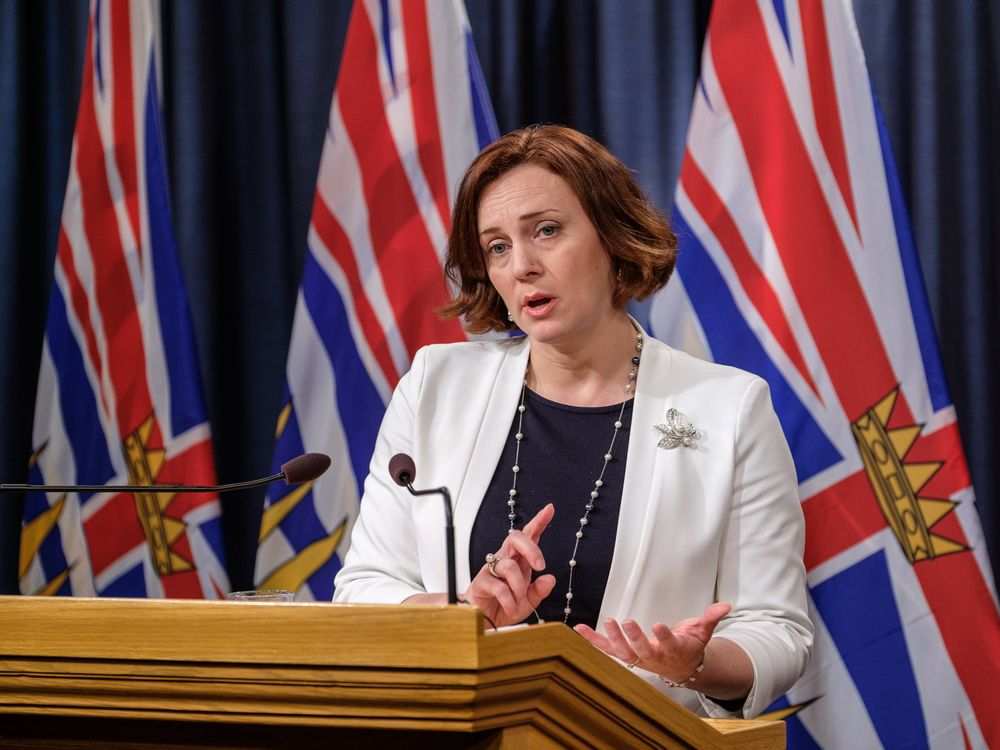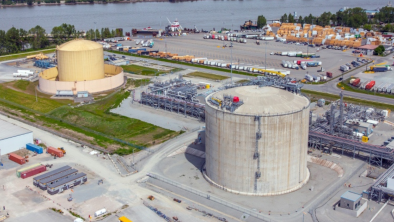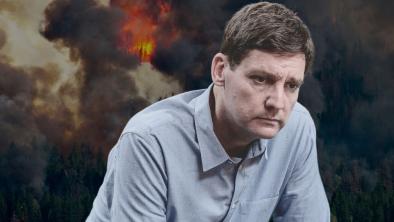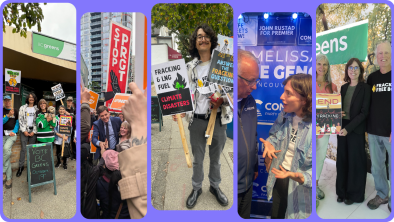Vaughn Palmer: 'Robust' a tad generous in summing up science panel's fracking report
Vancouver Sun

"My home is heated by natural gas. Most of our homes are heated by natural gas in B.C. That natural gas comes from the northeast, for the most part, and it is pulled up from the ground using hydraulic fracturing."
VICTORIA — The New Democrats chose the word “robust” in reporting this week on how a scientific panel had characterized B.C.’s regulatory framework on fracking in the natural gas sector.
As in: “An independent scientific review of hydraulic fracturing in B.C. has found the regulatory framework to be robust, while also identifying areas for improvement.”
The claim brought a vigorous response from the environmental watchdog Wilderness Committee.
“Robust, my rear-end!” protested climate campaigner Peter McCartney. “How the ministry can characterize this report as anything but a scathing indictment of their failure to oversee this industry is beyond me.”
The three scientists on the government-appointed panel did not go quite that far in their review of the process whereby pressurized water is used to fracture shale rock, releasing the natural gas trapped within.
But they identified far more grounds for concern than reassurance, particularly in regards to the supposed robustness of the regulatory framework.
“The current regulations under many acts appear to be robust,” they wrote in the concluding passage of the 200-plus page report. “However, insufficient evidence was provided to the panel to assess the degree of compliance and enforcement of regulations.”
The trio were likewise hesitant to specify whether the regulations were sufficient to manage the risks associated with fracking, owing to lack of research about the impacts on matters such as ground and surface water, earthquakes and public health.
“The panel wishes to emphasize that it could not assess risks with any confidence, and therefore only potential risks are discussed herein,” they emphasized in a passage printed in bold face text. “Moreover the panel could not assess whether risk is currently being managed or not.”
The scientists issued almost 100 recommendations for precautionary regulation of fracking and improved research into impacts on the environment, health and safety.
“The recommendations are varied and often specific, but in some cases are not precise and speak to broader issues that require more thought on the part of government,” wrote the panel by way of handing the challenge back to the New Democrats.
The New Democrats in turn plan to take their time digesting and implementing the advice.
“As the report is highly technical,” said the energy ministry in releasing the report, “the ministry has developed a phased approach to implementing the 97 recommendations.
“In May 2019, the government will release its short-term action plan, followed by its long-term action plan in December 2019.”
The ministry said it has already begun to address some concerns raised by the panel, such as toughening regulation of the dam-like structures the industry builds to store water for fracking.
The release did not include any statement of intentions from Energy Minister Michelle Mungall, who appointed the panel last year and received the findings last month.
But that was not to leave the door open to a favourable response to the calls from the Wilderness Committee and others “to halt all fracking in B.C. now.”
The panel itself explained why that is not going to happen: virtually all of B.C.’s natural gas is produced by fracking.
Mungall ruled out any halt to fracking early in her term as energy minister.
“A moratorium?” she replied when the question was put to her during debate in the legislature in the fall of 2017. “Let’s think about what the consequences for that would be.”
A moratorium would mean a stop work order for the entire natural gas industry in B.C., including the share produced for domestic consumption.
“My home is heated by natural gas,” Mungall said. “Most of our homes are heated by natural gas in B.C. That natural gas comes from the northeast, for the most part, and it is pulled up from the ground using hydraulic fracturing.
“The idea that suddenly in B.C. we would turn off the switch to the way in which we heat our homes — who would do that?”
Answering her own question, she continued: “No government that wants to get re-elected would ever do that.”
Nor did the Green party go so far as to call for a halt to fracking after the report from the scientific panel.
“It highlights the need for more information on the risks of fracking so that government can make informed decisions to safeguard the environment and its citizens,” said the press release from the NDP’s partner in power sharing.
Though the party’s environment critic, Sonia Furstenau, once said she joined the Greens in part because of their call for a moratorium on fracking, she contented herself this week with criticizing the NDP’s continued support for liquefied natural gas development.
“It shows a lack of due diligence for government to continue with their LNG plans, which will inevitably bring more fracking, without evidence to address these concerns,” said Furstenau in commenting on the panel report.
“The B.C. Green caucus will continue to oppose LNG or any further investment in the fossil fuel industry, which undermines CleanBC’s emission goals, is harmful to people and the environment, and takes us further from an economy based on an innovative industry and workforce.”
No chance Mungall will back away from LNG either. At the earliest, B.C. is still several years away from producing liquefied natural gas for export.
But the New Democrats have already begun incorporating the ongoing multibillion-dollar investment in the industry into projections for more — dare one say “robust” — economic growth in the years ahead.
Twitter.com/VaughnPalmer


